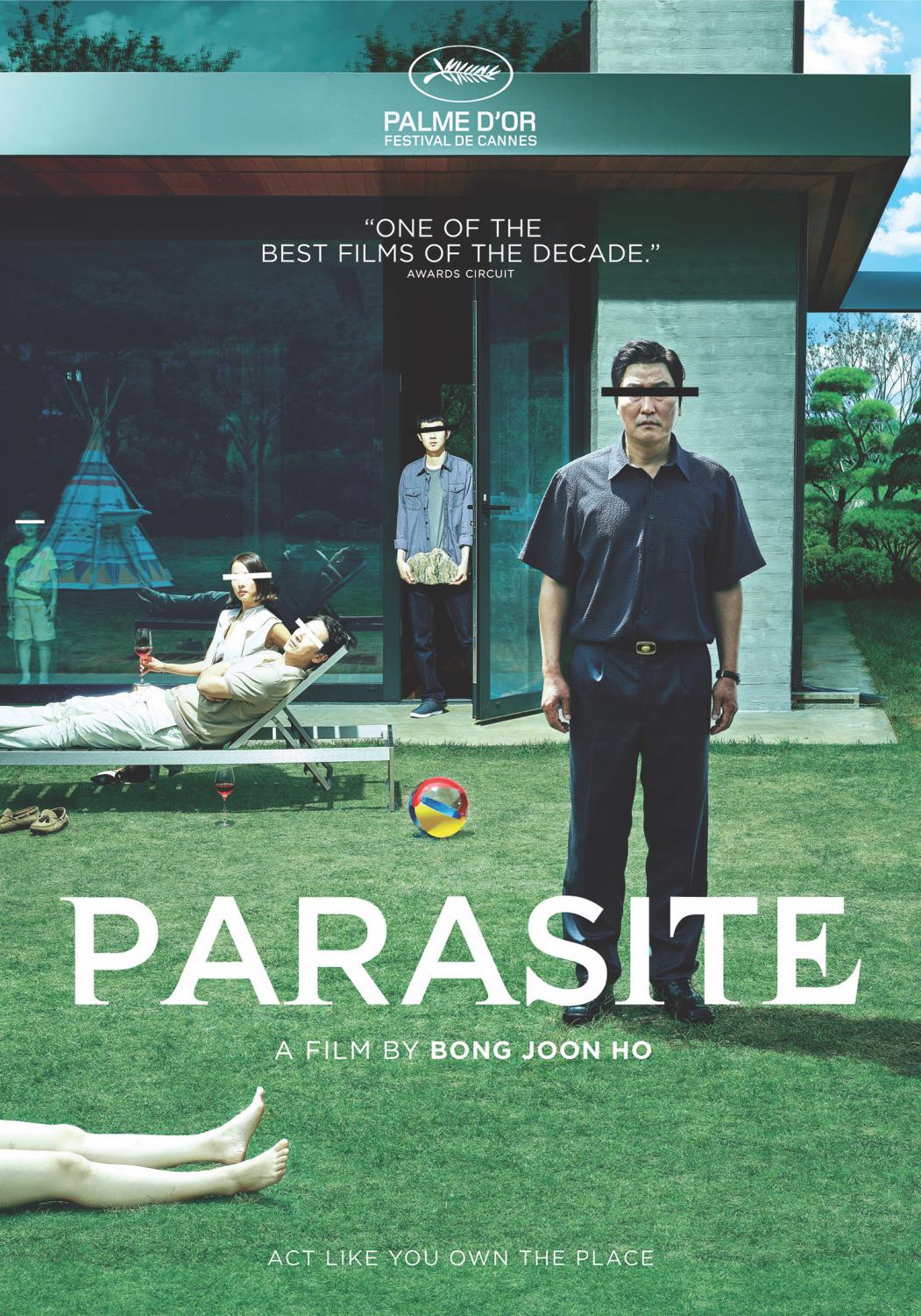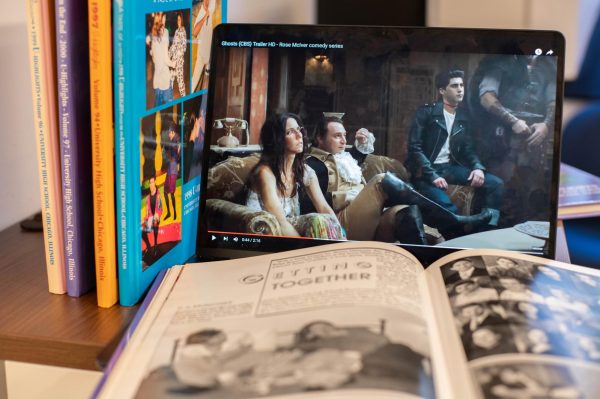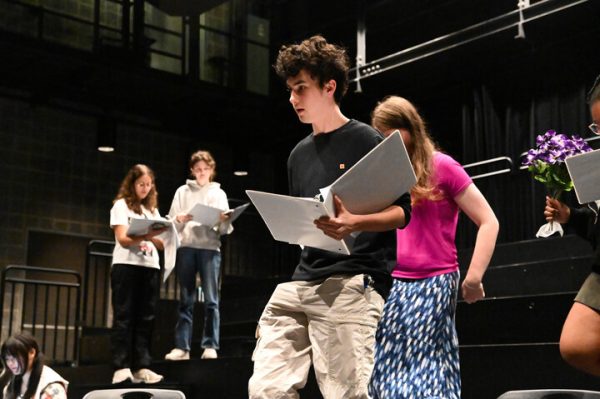‘Parasite’ fuses comical and frightening themes
Korean movie nominated for 6 Oscars takes stance on class
 As a man smashes his head against a light switch, blood streaming down his forehead, desperate to communicate in Morse code, one thing is clear. What was once a charming story about a desperate, lower-class family has gone absolutely crazy. And from here, it only gets crazier.
As a man smashes his head against a light switch, blood streaming down his forehead, desperate to communicate in Morse code, one thing is clear. What was once a charming story about a desperate, lower-class family has gone absolutely crazy. And from here, it only gets crazier.
“Parasite,” which follows a poor Korean family, blends humor, social commentary and creepiness into a terrifying, thrilling and dizzying two-hour spectacle.
The most compelling part about the movie is the acting, as despite the larger-than-life characters, each actor delivers a truly believable performance. The hapless patriarch of the lower-class Kim family, played by Kim Ki-taek, illustrates the pain of poverty while avoiding falling into the “failed man” stereotype. The scenes in the semi-basement, while certainly not the most exciting, are actually my favorite. The audience feels claustrophobic yet also comforted by the familial warmth of the family.
In contrast to the cramped semi-basement is the luxurious estate of the Park family, which the Kims cunningly infiltrate. The windows, looking onto the lush garden, make the estate seem as if it is situated in Eden, as opposed to the jammed window of the semi, looking onto public urinators and fumigation gases. The Park house feels more like a museum than a home, making it all the more clear just how out of place the Kim family is when “visiting.”
Directed by Bong Joon Ho, the film’s pacing is sublime. The first hour does not seem sinister in the least, yet something certainly feels off. Were the film not portrayed as a horror movie, the chaos that occurs in the second half would be a total surprise. So when chaos comes — and be sure, it does — it is that much more gripping and entertaining. Moreover, the chaos, while over the top, does not feel unwarranted. Rather, it feels like an eruption of tension that has built throughout the movie. And just when the audience believes the volcano has finally erupted, it comes back with vehemence and vigor before burning out in a spectacular, satisfying blaze.
While the film takes place in South Korea it is fascinatingly westernized. Many of the words in Korean are borrowed from English, creating a mixture between the two languages. Furthermore, the first point of access into the Park household comes from English — the Kim family’s youngest man takes on the job of tutoring the Parks’ youngest girl in English. The use of a foreign language creates what I saw as a sort of imposter in the film itself — a language which didn’t really belong, worked itself into a completely separate language in ways that become almost unnoticeable. It gives the English audience a meta form of experiencing the movie, as it is unclear whether English has invaded the Korean language, or vice versa.
“Parasite,” a perfect blend of scary and funny, artistic and accessible, provides a unique take on class, language and cinema. While it is still in theaters, the film is available to buy on Amazon from $14.99. It’s up for six Academy Awards — the first ever for a Korean film — including best picture, best director, best foreign language film and best original screenplay. If you haven’t seen it yet, it is well worth the $15.









